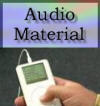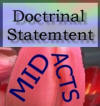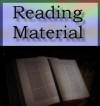 |
 |
 |
 |
 |
Doctrinal Statement
We affirm that the sevenfold unity expressed in Eph 4:1-7 is the Holy Spirit's doctrinal statement for the Church, the Body of Christ. We believe that all the expressions of doctrinal position and requirements for this dispensation must be in full accord with the Holy Spirit's outline.
Desiring to be in full accord with the mind of the Spirit, we hold and require the following doctrinal beliefs.
I. ONE BODY
A. The Church - Under the present dispensation there is only one true elect company (church): it is designated "the Body of Christ." And its historical manifestation began with the apostle Paul before he wrote his first epistle (1 Cor 12:13; Eph 3:6; 1 Th 2:14, 16; Acts 13:45-46). The Body of Christ contains neither Jew nor Gentile and is not to be confused with God's elect of the Jews or with God's elect of the Gentiles. These will retain their identities as Jews and Gentiles throughout eternity (Rev 21:12-14; Lk 22:28-30; 1 Cor 7:17-20; Rom 11:29).
B. Mission - The mission of the church, the Body of Christ, is to proclaim the message of reconciliation (2 Cor 5:14-20) and endeavor to make all men see what is the dispensation of the Mystery (Eph 3:9). The church, the Body of Christ, is not involved in bringing in the earthly kingdom.
II. ONE SPIRIT
A. His Person - The Holy Spirit is a Person, Who as God eternally existed with the Father and the Son (Deut 6:4; 2 Cor 13:14).
B. His Work in Regeneration
1. Total Depravity: All men by nature are spiritually dead and are totally unable to do anything pleasing to God (Eph 2:1-3; Rom 3:9-12). No one is able to come to Christ unless he is sovereignly drawn by the Spirit of God (John 6:37, 44; Rom 3:10-11; Eph 4:18).
2. Irresistible Grace: On the basis solely of God's sovereign love for His elect, the Holy Spirit regenerates the elect and causes them to believe (Eph 2:1-9; Acts 13:48; John 6:44-45, 63-65; 2 Th 2:13). This work is irresistible and sovereign.
3. Perseverance: The Holy Spirit's work in the elect is so powerful that they are delivered from the power of the sin nature (Rom 6:11) though the sin nature is never eradicated during this life (Gal 5:16-25). The believer is thus kept eternally by the power of God (Rom 8:38, 39). As saints (literally 'set apart ones'), separate from all forms of worldliness and apostasy, demonstrating obedience to the Lord and love toward His people (Rom 12:1, 9; 1 Cor 6:14-18; Eph 5:11; 1 Tim 6:20-21; 1 Jn 4:19). Open rebellion against the teaching of scripture for us today (1 Cor 11:19; Tit 3:10, comp. 2 Pt 2:1) and open disobedience to the commands of scripture for us today (1 Cor 5) are Biblical grounds for church discipline and may be evidence of one whose heart has not been changed by the Holy Spirit. (See also 1 Cor 4:16; 11:1; Phil 3:2, 17-21; 1Th 1:6; 2Th 3:7-9; 2 Tim 3:10-17)
C. His Other Gifts - The only public ministry gifts in operation today are the gifts of evangelists (missionaries) and teaching pastors (Eph 4:7-16). All of the sign gifts of the Acts period were temporary in character and have ceased (1 Cor 13:8-11).
III. ONE HOPE
The Body of Christ has its position in the heavenlies (Eph 1:3; 2:6; 2 Cor 12:2,3). This position is above that of all other created beings, including the holy angels, the elect Jews, and the elect Gentiles. At no time in history did God choose any individual unto more than one hope.
The event by which the Body of Christ is transported to the heavenlies (commonly called the 'rapture') is to take place before the beginning of Daniel's 70th 'week,' commonly called the 'Tribulation' (Dan 9:25-27), at the appearing of Christ in the air (Titus 2:13-14; 1 Th 4:13-18). After the Great Tribulation, Christ will come to establish the Millennial Kingdom (Zech 14:4,9; Rev 19:11-16; 20:4-6). After the Millennial Kingdom, there will be a new heavens and a new earth. The new earth will be the abode of Israel and the Gentiles.
By way of contrast with the saved, the unsaved will be resurrected and sentenced to everlasting conscious torment (Rev 20:11-15; 14:10-11).
IV. ONE LORD
A. His Person - Jesus Christ was begotten by the Holy Spirit and born of the virgin Mary, lived a sinless and godly life, died on the cross and was resurrected bodily from the dead (Lk 1:35; Phlp 2:6-9; Rom 1:3-4; 1 Cor 15:21). He is true God and true man.
B. His Particular Redemption - God justifies men by His grace upon the ground of the blood of Christ. The intent of the death of Christ on the cross of Calvary was to provide a certain redemption for those of God's choosing (Rom 5:6-8; 1 Cor 15:3-4). All who were ever the object of Christ's redeeming love and work are to be so for eternity (Rom 8:29-39). This is to be taught with all authority (Titus 2:11-15). The work of Christ secured absolutely nothing for the nonelect. The evidence that one is elected is the sovereign work of the Holy Spirit in redemption.
C. The Lord's Supper - As a memorial of the work of Christ in redemption, believers are to observe the Lord's Supper 'until He comes' (1 Cor 11:23-26).
V. ONE FAITH
A. The Bible - The entire Bible (66 books) in its original writings is verbally inspired of God and is of absolute and full authority (2 Tim 3:16-17; 2 Pet 1:21). The Bible is to be interpreted by the grammatical-historical sense, sometimes called the natural or literal method. By this we mean that we are to attempt to find what the passage was intended to teach the original hearers.
B. Saving Faith - True saving faith is wrought by the Holy Spirit and is manifested by repentance toward God and faith in the Lord Jesus Christ (Acts 20:21). Such faith must produce fruit (Gal 5:22-23). Such faith is inconsistent with opposition toward the doctrines of total depravity and the sovereign work of God (Jn 8:30-38).
VI. ONE BAPTISM
Each saved person in
this dispensation has been made a member of the Body of Christ
by one divine baptism (1 Cor 12:13) by which he is identified
with Christ in His death, burial, and resurrection. In the light
of Eph 4:5; Col 2:12,; and 1 Cor 1:17, we conclude that neither
water baptism nor any other ceremonies or ordinances (or
holidays) have any place in God's spiritual program for the Body
of Christ.
VII. ONE GOD AND FATHER
A. The Godhead - There is one God, eternally existing in three persons: Father, Son, and Holy Spirit (Deut 6:4; 2 Cor 13:14).
B. Creation - In six literal days, God created the universe and all the inhabitants thereof (Ex 20:11).
C. Sovereignty
1. Sovereignty in General: The scripture knows nothing of God apart from His unique attributes of immutability and sovereignty. He is omnipresent, omniscient and omnipotent. There is nothing in all of history that has happened nor can happen apart from His explicit decree and in accordance with His secret desire (Ps 115:3; Dan 4:35; Prov 16:1, 4; 21:1).
2. Unconditional Election: God, in eternity , chose out of sinful mankind those whom He would save, for no other reason than His own wise, just and holy purpose, apart from any conditions or merit present or foreseen in them (Ps 65:4; Ro 9:7-16; 11:5-6; Eph 1:11; 2 Tim 1:9)
3. Reprobation: As for those whom He did not choose unto salvation, God decreed from eternity that He would permit them to follow their own sinful desires, to remain under His just judgment and finally to condemn them in Hell, not only for their unbelief, but for their other sins as well, to the praise of His justice. This in no way makes God the author of sin but a fearful avenger and just judge. (Ps 5:5; Prov 16:4; Jn 12:39-40; Ro 9:18-24; 11:7-10; Eph 2:1-5; 2 Pet 2:12; Jude 4)
 |
 |
 |
 |
 |